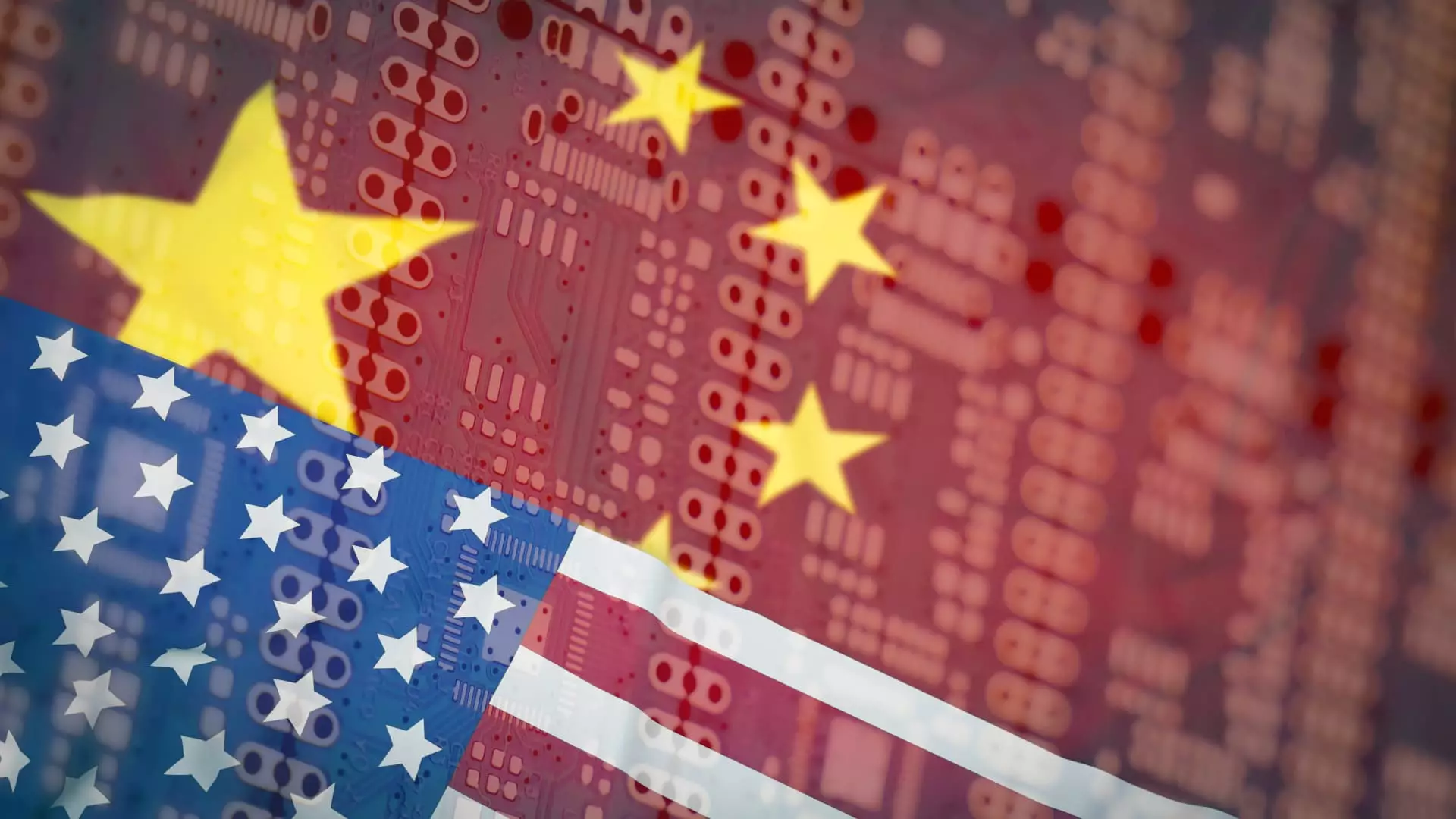In a world increasingly defined by digital advancement and geopolitics, Tencent and Baidu rise as titans in the Chinese tech landscape, demonstrating an ambitious resilience amid stringent U.S. semiconductor export restrictions. Unlike many corporations that buckle under pressure, these companies embody a refreshing tenacity, rapidly adapting to hurdles that threaten their AI endeavors. This isn’t merely survival; it’s a relentless pursuit of innovation. The leadership teams at both Tencent and Baidu showcase an ability to pivot strategically, signifying a sophisticated understanding of the intersection between technology and international relations.
Tencent’s Strategic Chip Stockpiling
Martin Lau, the president of Tencent, paints a picture of confidence amid chaos. With a robust inventory of graphics processing units (GPUs), he asserts that his company can maintain the momentum of its AI developments. What sets Tencent apart is not just its physical stockpiling of chips, but its mindset. Lau posits that true efficiency doesn’t solely depend on having the most GPUs, but rather on deploying them smartly. He emphasizes a methodology of utilizing fewer high-end chips more effectively through software optimization. This perspective dismantles the widespread belief in the necessity of massive hardware resources, fostering a more sustainable approach to AI training.
This resourceful thinking is indicative of a broader trend in the industry: companies striving to innovate under the constraints imposed by external forces. By prioritizing software solutions over brute-force hardware expansion, Tencent is not merely adapting; it’s redefining industry standards. Their dual focus on efficiency and creativity could very well set the stage for a new wave of AI growth that defies traditional expectations—offering a nuanced debate on what ‘cutting-edge’ actually means.
Baidu’s Bold Full-Stack Strategy
On the frontlines of innovation, Baidu is making waves with its assertive “full-stack” approach to AI. Dou Shen, president of Baidu’s AI cloud venture, stands firm in asserting that the technological prowess of Baidu transcends the limitations set by chip access. Rather than wallowing in the mire of what they lack, Baidu has cleverly woven together its cloud capabilities, AI algorithms, and practical applications, such as their ERNIE chatbot, into a formidable entity. This strategy borders on audacious—transforming potential obstacles into stepping stones toward greater market relevance.
Baidu’s strategy to optimize existing resources is a wake-up call for many. While some critics may argue that lacking advanced chips stunts innovation, Baidu’s performance challenges this notion head-on. By focusing on refining their applications and streamlining costs, they’re carving a niche that celebrates simplicity and effectiveness over sheer power. Their ethos represents a counter-narrative suggesting that, sometimes, less truly is more; a viewpoint that resonates well in an environment often obsessed with scale.
The Call for Domestic Semiconductor Innovation
Digging deeper into the landscape of self-sufficiency, both Tencent and Baidu highlight the accelerating pace of homegrown semiconductor production in China. As geopolitical tensions evolve, a pronounced shift toward internal development has emerged—a necessity for companies that aspire to lead in AI without the strings of foreign dependencies. While there remains a notable gap between the States and China in AI chip performance, the strides being made are anything but trivial.
Industry expert Gaurav Gupta underscores the essence of this narrative. China’s commitment to establishing a comprehensive semiconductor ecosystem—from materials to packaging—is a strategic blueprint for autonomy. Critics often underestimate China’s resolve and ambition in this sector, overlooking the consistent progress which, though perhaps still lagging, shows promise for the future. The nuances within this competitive landscape reveal a powerful undercurrent: innovation can flourish even in the shadow of adversity.
American Perspectives: A Double-Edged Sword
As the U.S. government tightens its grip on semiconductor exports, a significant irony unfolds. Several American tech leaders, including Nvidia’s CEO Jensen Huang, have voiced concerns that the restrictive measures might backfire, inflicting greater harm upon American businesses than their Chinese counterparts. This narrative ignites a spirited debate about the efficacy and ethical implications of such curtailments. While the intent may be to safeguard national interests, the reality is that innovation, competitiveness, and market leadership are maintained through collaboration and openness.
The ongoing dialogue surrounding export restrictions and their impact on global competition begs the question: can isolationism ever truly foster advancement? In the throes of rising nationalism, there is a palpable risk of stifling creativity and ceding market share to nations like China, eager to capitalize on every unlocked avenue of innovation.
Tencent and Baidu stand as striking examples of how determination in face of adversity—not mere compliance or retreat—could reshape the global technology narrative. Their journeys offer fundamental lessons: that resilience in the tech landscape is not determined solely by access to resources, but equally by vision, strategy, and the audacity to embrace change.

